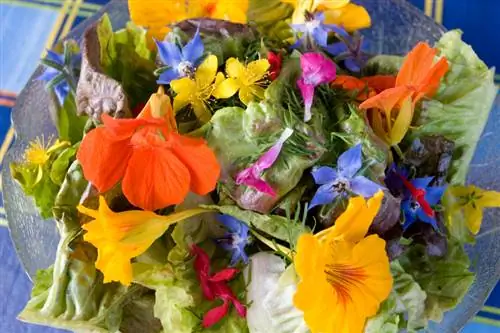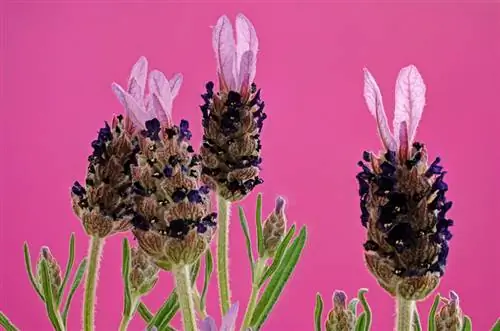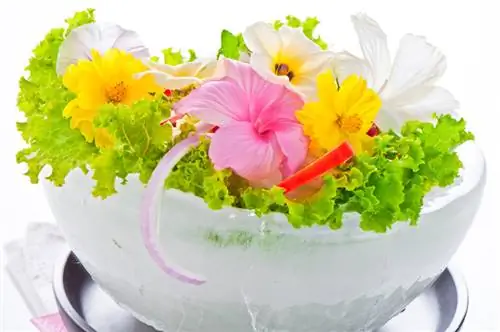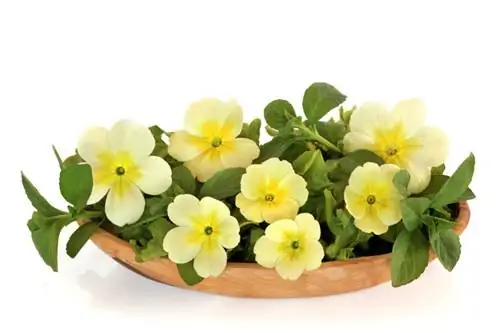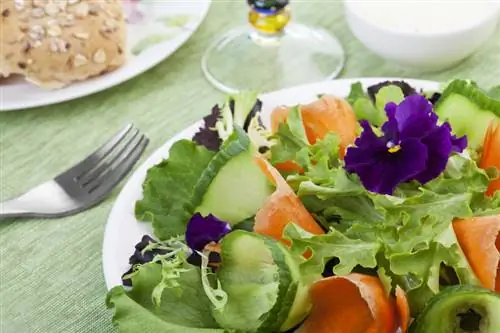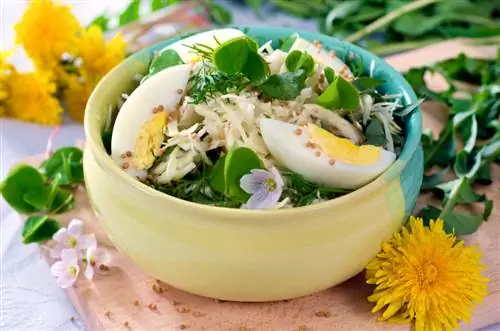- Author admin leonars@hobbygardeners.com.
- Public 2023-12-16 16:46.
- Last modified 2025-01-23 11:20.
A surprisingly large number of flowers from wild and climbing plants are edible. The flowers and leaves of the black-eyed Susan are no exception. They not only look very decorative, but also impress with a slightly spicy aroma.
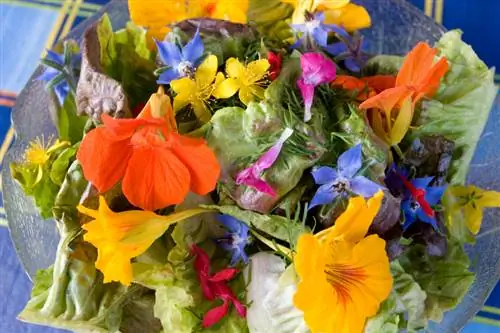
Is the Black-eyed Susan edible?
The black-eyed Susan is edible: its flowers and leaves contain no toxins and are safe to eat. The slightly spicy aroma is reminiscent of cress and is suitable for wild herb salads, flower salads, bread toppings or as a decoration for cocktails.
Black-eyed Susan flowers are edible
The flowers of the black-eyed Susan are only about four centimeters tall. They come in white, yellow and orange with or without the dark center that gave the flowers their name.
Just like the leaves, the flowers contain no toxins and are therefore safe to consume.
Not only humans appreciate the aroma, but also some pets such as bearded dragons and other herbivores.
Light cress aroma
The aroma of the black-eyed Susan is reminiscent of the popular cress. The edible flowers are used for the same dishes.
How to use the Black-Eyed Susan in the kitchen
- Wild herb salads
- Flower salads
- Decorations for fruit and vegetable salads
- Bread topping
- Decoration for cocktails
The leaves give salads made from wild herbs a special touch. You can also sprinkle them chopped into small pieces on the bread and butter.
The edible flowers with their pretty colors go well in flower salads. They can be used to lovingly decorate other salads and vegetable plates.
At your big summer garden party, you'll be sure to impress with cocktails decorated with black-eyed Susan flowers.
Be careful when fertilizing
If you want to harvest black-eyed Susan leaves and flowers for the kitchen, you should be a little more careful with fertilizing. An organic fertilizer is recommended. You should avoid chemical fertilizers entirely because of the artificial ingredients as they can change the taste.
Harvest leaves and flowers in the morning when they are as dry as possible. Then the aroma comes into its own better.
Don't pick too much, after all, you want to enjoy the splendor of the black-eyed Susan's colors with your eyes too.
Tips & Tricks
The Black-Eyed Susan is ideal for gardens and balconies where children and pets often stay. Since neither flowers nor leaves contain toxic substances, they pose no danger.

